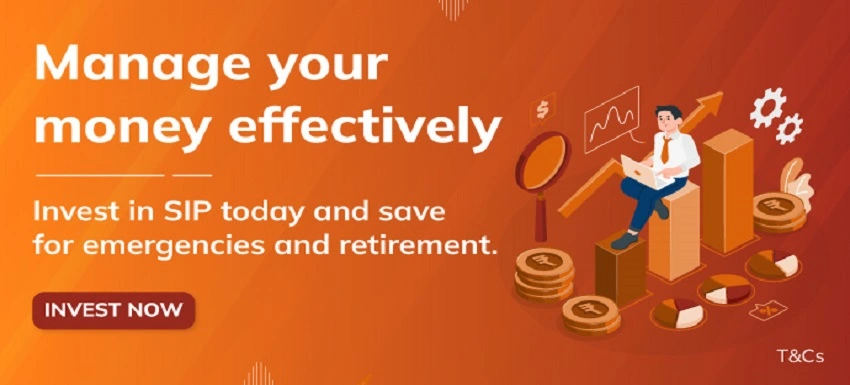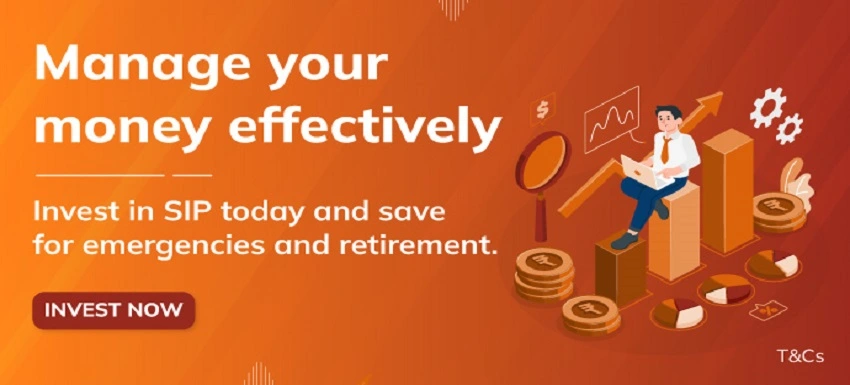THE
ORANGE
HUB
Exchange Traded Fund (ETFs): Know Meaning & Benefits

Exchange Traded Fund (ETFs): Know the meaning & benefits
Exchange Traded Funds (ETFs) have gained immense popularity among investors globally and in India. The ETF Mutual Fund had a total global Asset Under Management (AUM) of nearly USD 10 trillion. In India, interest is also rising with fund houses launching new funds. Therefore, it is important to understand its functioning.
This comprehensive guide explores what ETFs are, how they work, their advantages and disadvantages and how to invest in them.
What is an ETF?
An Exchange Traded Fund (ETF) is a type of Mutual Fund scheme listed and traded on a stock exchange, much like individual stocks. ETFs can be bought and sold through the stock exchange during trading hours. Most ETFs are passively managed, which means they aim to replicate the performance of a specific index or asset class. However, there are actively managed ETFs too.
Passive ETF Mutual Funds are designed to track various indices or benchmarks, such as the NIFTY 50 in India. For example, an ETF tracking the NIFTY 50 will invest in the same companies and proportion as the index. ETFs can also track sector-specific indices (e.g., NIFTY Pharma) or commodities like gold, offering investors exposure to various assets.
Types of Exchange-Traded Funds
ETFs can be categorised based on where they invest, providing investors with diverse options to suit their investment goals. Here are some popular types of ETFs:
Equity or Market ETFs:
These ETFs aim to track a particular equity index, such as the NIFTY 50 or SENSEX. These ETFs expose investors to a broader market or a specific segment.
Thematic or Sector ETFs:
Thematic or sector-specific ETFs focus on specific industries or themes, such as pharmaceuticals, technology or oil. Rather than mirroring the overall market, they invest in a basket of stocks related to a specific sector or theme.
Commodity ETFs:
Commodity ETFs track the price movements of commodities like gold, silver or oil. Investing in these ETFs allows you to participate in the commodity markets without physically owning the commodities.
International ETFs:
International ETFs provide exposure to foreign markets such as the NASDAQ 100 or Hong Kong's Hang Seng Index. They offer a convenient way to diversify a portfolio with international assets.
Inverse ETFs:
Inverse ETFs, also known as Bear ETFs or Short ETFs, aim to deliver the opposite performance of a specific index. Investors profit when the index declines and incur losses when it rises.
Leveraged ETFs:
These ETFs use leverage and derivative instruments like futures, options and swaps to amplify returns. They allow investors to take larger positions with relatively less capital.
Bond ETFs:
Bond ETFs, also known as Debt ETFs, add a debt component to portfolios. They invest in fixed-income securities and generate income from interest payments.
How Does It Work?
Investing in ETF Mutual Funds is similar to buying and selling stocks on a stock exchange. ETF units are bought and sold at market prices during trading hours on the exchange. Here's how it works:
Brokerage Account:
To invest in ETFs, you need a brokerage account. Just like you need a Demat Account for stock trading, a Demat Account is necessary for ETF investments.
Select ETF:
Choose the ETF that aligns with your investment objectives. Research factors like historical performance, holdings, expense ratio and tracking error to make an informed decision.
Make Payment:
Once you've selected an ETF, you can order it through your brokerage account. Your payment is processed and ETF units are credited to your Demat Account.
Things to Consider While Investing in ETFs
Before investing in ETF Mutual Funds, consider the following factors:
Past Performance:
While past performance doesn't guarantee future returns, it is essential to assess and compare a fund's historical performance with similar funds.
Trading Volume:
Higher trading volume indicates better liquidity and narrower bid-ask spreads. Look for ETFs with sufficient trading volume to ensure easy buying and selling.
Expense Ratio:
ETFs typically have lower expense ratios than actively managed funds. Choose ETFs with lower expense ratios to maximise your returns.
Tracking Error:
Tracking error, measures how closely an ETF replicates its underlying index's performance. Lower tracking error indicates better tracking of the index.
Key Terms to Understand :
Net Asset Value (NAV) and Market Price:
ETFs have both NAV and a market price. The NAV represents the underlying assets' value, while the market price is the price at which ETF units are bought and sold on the exchange.
Tracking Error:
Tracking error, measures the deviation in an ETF's performance from its underlying index. Lower tracking error indicates better tracking of the index.
Advantages of ETFs
Avoids Fund Manager Bias:
Most ETFs are passively managed, eliminating fund manager biases and offering transparent investment options.
Simplicity:
ETFs are easy to understand, making them suitable for novice and experienced investors alike.
Lower Turnover Ratio:
ETFs generally have lower turnover ratios, leading to reduced costs and better tax efficiency.
Low Expense:
ETFs typically have lower expense ratios than actively managed funds, saving investors on fees.
Disadvantages of ETFs
Liquidity Concerns:
Some ETFs may have low trading volumes, leading to liquidity issues, wider bid-ask spreads and potential difficulties in selling units.
No Initiative to Outperform:
Passive ETFs aim to replicate their underlying index so they won't outperform it.
How Are ETFs Different From Index Funds?
While ETFs and index funds share similarities, they differ in several ways:
Management Style:
Index funds are usually passively managed, while ETFs can be either passively or actively managed.
Liquidity:
ETFs are traded on stock exchanges, allowing intraday trading and potentially higher liquidity. Index funds are priced at the end of the trading day.
Need for Demat Account:
Investing in ETFs requires a Demat Account, while index funds can be purchased without one.
Tracking Error:
ETFs typically have lower tracking errors than index funds, resulting in closer tracking of their underlying indices.
Should You Invest in ETFs?
ETF Mutual Funds offer numerous advantages, such as cost-efficiency, transparency and diversification. They can be excellent additions to your investment portfolio, especially for passive investors looking to align with specific market indices or themes.
ICICI Bank provides a platform for investors to explore a wide range of ETFs, making it convenient to include these investment vehicles in your portfolio. Whether you are a seasoned investor or just starting, understanding ETFs and how they fit into your investment strategy can help you make informed decisions to achieve your financial goals.
Exchange Traded Funds (ETF) Mutual Funds have become a prominent investment option in India, offering investors a cost-effective and transparent way to access various asset classes and market segments. By understanding how they work, their tax implications and the factors to consider, you can make well-informed investment choices that align with your financial objectives. Consider incorporating ETF Mutual Funds into your investment strategy to diversify your portfolio and potentially enhance your returns.
You can use the ICICI Bank online portal to invest in funds with a hassle-free experience. It has 2,500+ schemes to choose from and exclusive investment options.
T&Cs.
Scroll to top











